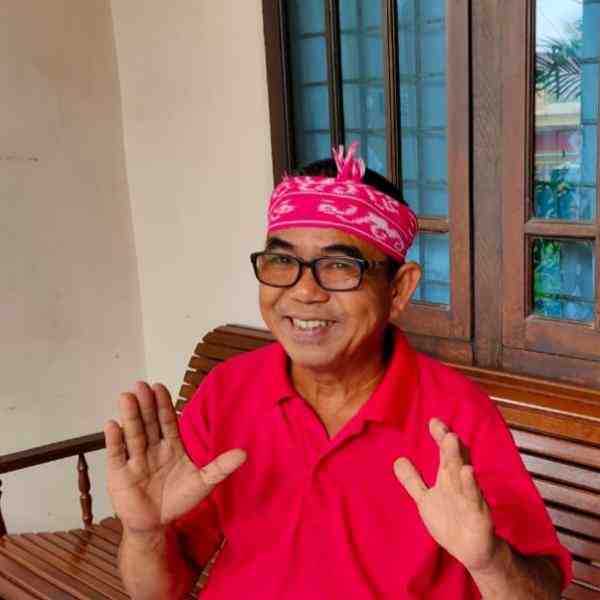Introduction
In the process of helping his community build economic self-reliance, Stefanus Djuweng is assisting the indigenous Dayak people of West Kalimantan in Indonesia to strengthen their sense of identity and community.
The New Idea
Stefanus Djuweng, himself a Dayak, has seen firsthand that his ethnic group has over the years become ashamed of its cultural identity and practices. He knows that the first step towards development of his community, and the region as well, is helping his people regain their pride and traditional solidarity. Building upon local traditions of self-reliance, Stefanus is also developing a financial mechanism that will promote economic independence, build community interdependence, and place control of regional development in the hands of the local people. He is establishing a lending and development fund into which each community member is asked to place a percentage of his or her income. As the fund builds, community members strategically use the money to assist other members of the community with emergency costs–such as funerals or schools fees–and also initiate community development projects.The funds build community solidarity by providing a structure in which the community makes decisions about its own welfare and development, free from dependence on outside help from either government or foreign agencies.
The Problem
The Dayak people comprise 41 percent of the population of Kalimantan and are rich in resources such as fertile land. They are, however, regarded as backward by others in the region, and thus exist as a marginalized community. Suffering from this negative stereotype, they have lost confidence in themselves and their community, and have become dependent upon outside help to provide them with charity and direct their local development which has led to an even worse self-image and great external dependence. Despite this outside aid, little has been done to develop the economy of the Dayak community, and poverty remains endemic. The Indonesian government and foreign agencies have tried to implement credit and development programs in the region, but these programs were developed without the input of the people involved and were directed from the outside and, as a result, have generally failed.
The Strategy
Working through three local, indigenous, private nonprofit organizations, Stefanus first approached the community by initiating self-awareness workshops. In these workshops, the Dayak people have begun to learn to confront the stereotypes of their culture promoted from the outside, examine and admire the traditional strengths and resources of their community.Stefanus then organized a community collective fund among the individuals. Community members are asked to contribute as little as US$6.00 per year to begin to build a community development fund. In the first district he approached, Stefanus has persuaded 700 people to invest in their own development. The fund now totals over US$40,000 and is used to assist community members with their immediate needs on a case by case basis. Stefanus' goal is to build the fund to 15,000 members over the next five years, increasing the amount of the fund to the point where the community can begin to plan and fund its own development activities at a level beyond that of the individual family.Over time, Stefanus will spread and replicate his program throughout the hundreds of Dayak communities in Kalimantan. Eventually, however, he hopes that the community development fund will serve as a model for self-development in other indigenous communities throughout Indonesia.
The Person
Stefanus grew up witnessing the gradual destruction of his culture and the diminishing economic resources of his people. This inspired him to found the Institute of Dayakology and Research, an organization that researches and documents Dayak culture. The research is not merely academic or anthropological in nature, but involves studies that aid in the restoration of Dayak pride, that will increasingly permit the community to speak for itself and, where necessary, advocate policy changes. Djuweng is also a writer who brings the richness of the Dayak culture to his work. He is married and has two children.
